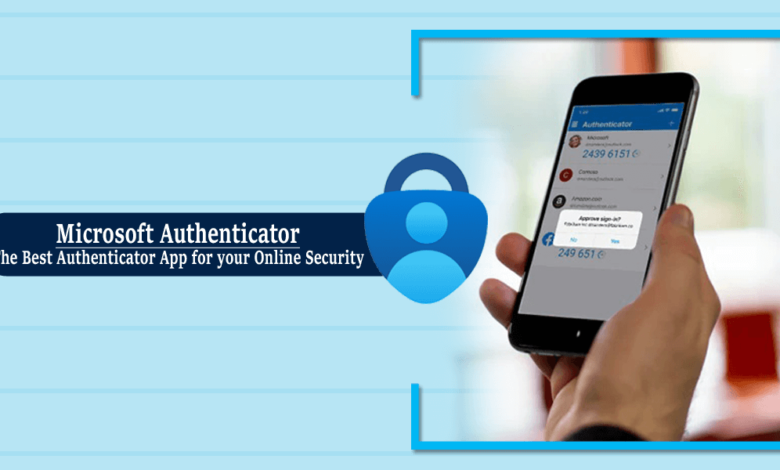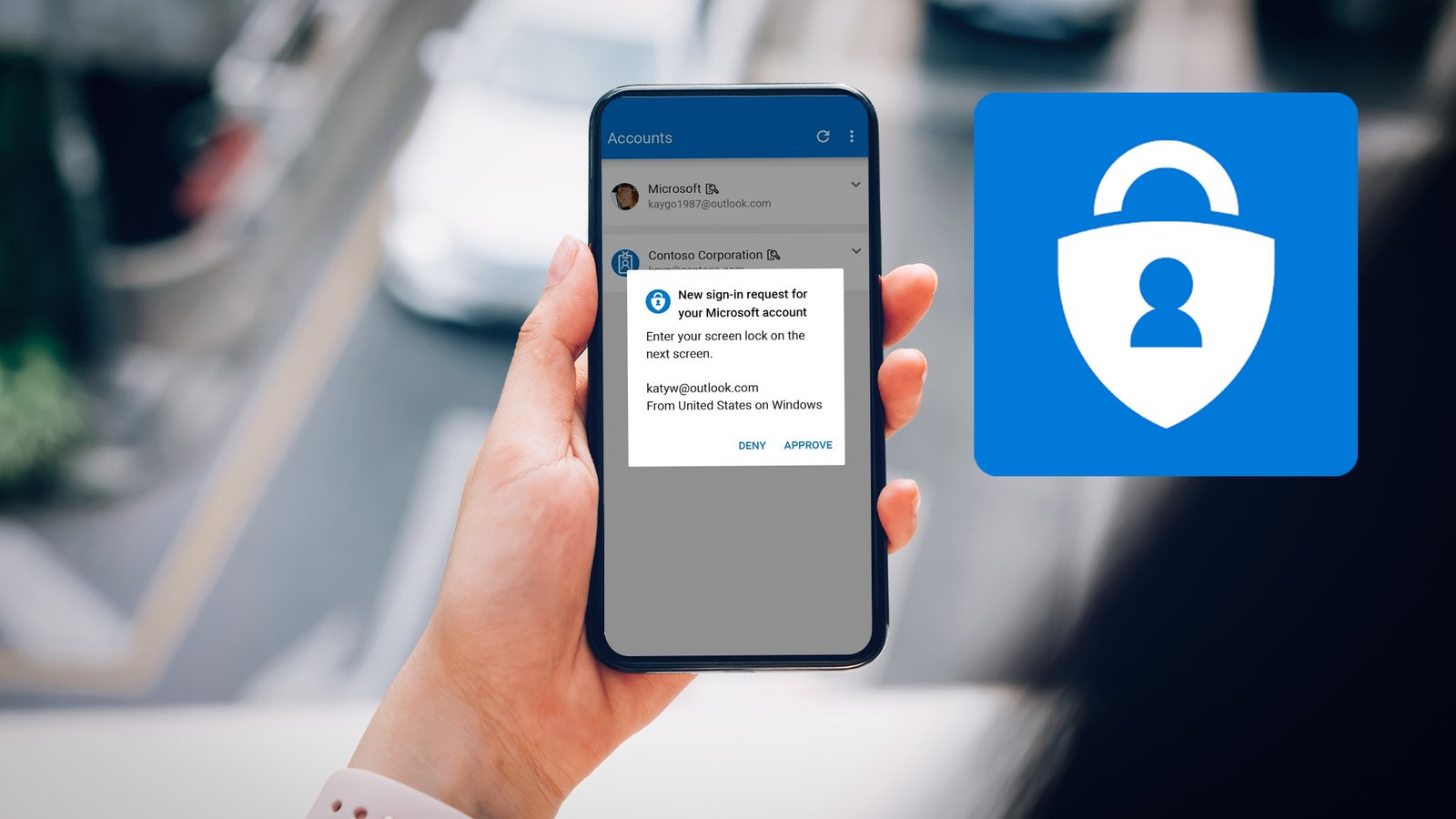
Maintaining security and protecting personal knowledge is a top priority in our digital age. Authentication apps like Microsoft Authenticator have become critical tools for connecting online narratives. Yet, with the comfort of these apps comes a set of privacy concerns. This guide thoroughly explores these concerns, concentrating on the privacy implications of using the Microsoft Authenticator app. We’ll also examine what measures are in standing to protect user privacy and how users can protect their data.
What is the Microsoft Authenticator App?
The Microsoft Authenticator app is a compact application that betters online protection via two-factor authentication (2FA). It lets users confirm their uniqueness when accessing online performances, supplying an additional layer of security. The app generates a one-time code or causes notifications to secure a user’s identity, preventing unauthorized entrance.
How Does the Microsoft Authenticator App Work?
The Microsoft Authenticator app generates unique codes or sends push notices to a registered mobile appliance. When users risk logging into an online account, they are encouraged to join the generated code or approve the push notification. This extra step ensures that only authorized users can access their budgets, which is essential if their passwords have been compromised. This security layer helps reduce the risk of unauthorized entrance, providing a safety net for password breaches.

H2: Privacy Concerns with Authentication Apps
In today’s where cybersecurity threats threaten large, authentication apps have become indispensable tools for safeguarding our online accounts. These apps provide an additional layer of security exceeding traditional passwords, frequently through methods like two-factor authentication (2FA) or biometric verification. While they suggest improved protection, they also raise significant privacy concerns. In this guide, we’ll explore the privacy implications of employing authentication apps, exploring the data they gather, how it’s reserved, and the potential risks associated with their service.
Understanding Authentication Apps
Authentication apps play an essential role in verifying the identity of users accessing online assistance or accounts. They develop unique codes or send push notifications to registered devices, ensuring that only qualified individuals gain access. This additional step helps mitigate the risk of unauthorized entrance, even if passwords are compromised.
Privacy Concerns
Despite their security benefits, authentication apps pose several privacy risks that users should be aware of. One of the primary concerns is the data they collect. These apps frequently gather various types of information, including user identifiers, device information, and use practices. While some data collection exists necessary for functionality, users may be more comfortable with the extent of information collected and how it’s used.
Data Collection and Usage
Authentication apps may collect data for purposes beyond simple authentication. For example, some apps track user behavior and interactions, which could be used for targeted advertising or analytics. Additionally, the storage and security of this data present concerns. Users are concerned about the potential of data breaches or unauthorized entrance to their knowledge, especially if it’s held on servers beyond their control.
Third-Party Integrations
Many authentication apps offer integrations with third-party services, allowing users to use them across multiple platforms. While convenient, these integrations raise additional privacy concerns. As a result, users may admire how their data is communicated with these third parties and whether sufficient protection standards are in location to defend their privacy.
Addressing Privacy Concerns
Authentication app developers must prioritize user privacy and security to address these privacy concerns. It includes executing robust data protection standards, transparent data practices, and user control over their knowledge. Providing apparent information about data collection and use and easy-to-understand privacy stages can help users make informed decisions about their privacy.
Specific Privacy Concerns with Microsoft Authenticator App
While privacy concerns are common across authentication apps, some are unique to Microsoft Authenticator. Let’s examine these specific issues to understand the risks involved.

Location Tracking
One of the privacy concerns with the Microsoft Authenticator app is the prospect of location search. Some users fear the app may contain location data without detailed consent, increasing concerns about how this knowledge is used. While location tracking can be helpful for specific features, users must know when and why this data is collected.
User Tracking and Analytics
Another concern is the tracking of user behavior and analytics. Users worry that the app may monitor their activities and use this data for purposes beyond authentication. This tracking can extend to analyzing usage patterns, which may be used for targeted advertising or other forms of data monetization.
Third-Party Integrations
The Microsoft Authenticator app can combine with other services, increasing questions about third-party user data access. As a result, users must be discreet about how these integrations function and whether their knowledge is being shared with external entities. Third-party services not adhering to rigorous security standards could lead to more significant privacy threats.
Addressing Microsoft Authenticator App Privacy Concerns
Microsoft acknowledges the importance of user privacy and has accepted steps to manage these concerns. Here are some steps in place to defend user data and maintain privacy.

User Control and Consent
Microsoft Authenticator manages user data and seeks consent before taking specific actions. It allows users to decide which data to share and opt out of features threatening their privacy. With this degree of control, users can better manage their security and stay informed about how their information is used.
Privacy Settings and Customization
The app suggests diverse privacy settings, allowing users to customize their experience to suit their choices. These options allow users to modify the level of data sharing and select which features to turn on or off. Microsoft effectively addresses some common concerns with authentication apps by enabling users to customize their privacy.
How to Use Microsoft Authenticator App Safely
Despite the privacy concerns, users can take steps to operate the Microsoft Authenticator app safely. Here are some tips for preserving privacy while operating the app.

Minimizing Data Sharing
Users should minimize data sharing whenever possible. This can be done by modifying privacy settings, turning off location searches, and avoiding excessive integrations with third-party assistance. Reducing the amount of shared data can significantly lower the risk of privacy threats. This course of action contributes to a more secure environment by minimizing the exposure of sensitive information. It helps reduce the risk of unauthorized access while decreasing the likelihood of data misuse.
Staying Informed about Updates
It’s important to keep abreast of app updates and new features. This awareness allows users to identify changes that could significantly affect their privacy. By staying up-to-date with app products, users can make informed assessments about their data and take the required steps to safeguard their privacy.
Alternatives to the Microsoft Authenticator App
For users who are concerned about the significance of privacy in Microsoft Authenticator, there are alternative authentication apps that prioritize privacy. Some of these apps suggest comparable functionality while concentrating on user data protection. Exploring these alternatives can give users more options and peace of mind.
Conclusion
The Microsoft Authenticator app provides strong security but also extends privacy problems. Users should understand these threats and take steps to safeguard their data. Microsoft has managed these matters, but eventually, users are accountable for their privacy. By following best practices and keeping up-to-date, users can more confidently use the app.
FAQs
The app may contain location data for individual features, but users can modify privacy settings to disable or modify location tracking. The app suggests privacy settings, authorizing users to customize their knowledge and control data sharing. Some choices, including Google Authenticator, Authy, and Duo Mobile, suggest comparable functionality while prioritizing user solitude. To ensure data security, use strong passwords, allow two-factor authentication, undervalue data sharing, and remain knowledgeable about app updates. Does the Microsoft Authenticator app track my establishment?
Can I customize privacy stages in the Microsoft Authenticator app?
What are some choices for the Microsoft Authenticator app?
How can I ensure my data is secure using the Microsoft Authenticator app?








